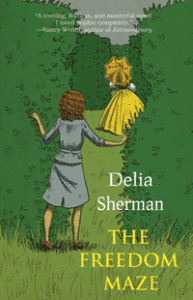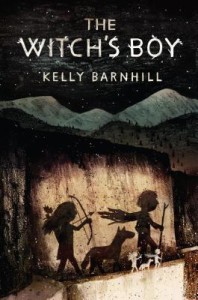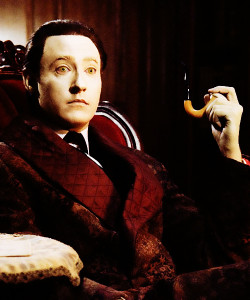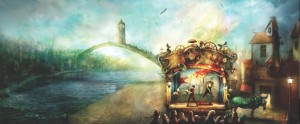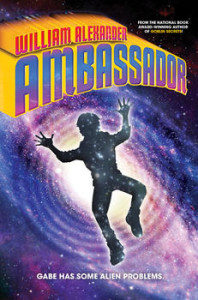I caught a meme from Delia Sherman. She is wise, and kind, and a wonderful writer. She won the Mythopoeic Award in 2012 for The Freedom Maze, a book that absolutely everyone should read. (I’ll have more to say about the Mythopoeic Award in my next post.) She tagged me with a meme, and I couldn’t say no.
This is Delia’s contribution to the great, internet-spanning Writing Process Blog Tour. She says blush-inducing things about me there.
For the next stop on this tour visit Kelly Barnhill, to whom I have passed on the meme-germs. I got to read an advance copy of her next novel, The Witch’s Boy. You are insanely jealous of this, and you should be.
Kelly will be posting answers to these selfsame questions early next week. Meanwhile, here are mine:
1. What Am I Working On?
Science fiction! As a kid I always assumed that I’d grow up to write science fiction. I wanted to tell stories that made sense of things. The universe is unsettling, but we can always count on Spock, or Data, or the Doctor to tame otherworldly terrors by making them make sense.
This did not go as planned. At some point during adolescence the world ceased to make sense to me. (Adolescence usually does that to people.) I started to prefer stories that followed sideways and associative sorts of logic. I went back to reading fairy tales, and books based on fairy tales, all of them filled with unsettling and otherworldly terrors—but not the kind you can just explain away. And when I started writing, I wrote fantasy.
But now I’ve come back around to more omnivorous reading habits. Now I like splitting my time between the two hemispheres of speculative fiction’s hivemind. I also write for kids, and I still need to tell stories for the young reader that I used to be—the one who craved science fiction in particular, the one who wanted to fight monsters by making them make sense.
Ambassador, my first SF novel, comes out in September. It’s about Gabe Fuentes, a kid who becomes the ambassador of our planet. Right now I’m writing the sequel.
2. Why Do I Write What I Write?
Because I’ve never needed books more than I did when I was eleven, and because I love stories that unriddle the world, and because otherworldly tales are always necessary for changing the shape of our own.
(The phrase “unriddle the world” is me quoting Susan Cooper quoting Alan Garner.)
3. How Does My Work Differ From Others Of Its Genre?
I stared at this question for a long time. Then I tried to answer it. Then I gave up, because this isn’t really a question for writers. This is a question for readers.
Books and stories make up a vast ecosystem. As I writer, I can’t see the shape of the landscape while I’m trudging through it. As a reader, I’m more interested in shared conversations and similarities than the differences that set each book or author apart.
4. How Does my Writing Process Work?
First I need my own small children to nap. If the kids are awake and at home, then I’m not writing. Maybe this is just a parental time-management issue, or maybe I siphon off my books directly from their napping dreams. I don’t know. You’ll have to ask them.
Step One: Pour stolen nap-dreams into a large flask or cauldron. Step Two: Add espresso. Step Three: Slowly stir while adding instrumental music. Step Four: Continue stirring until the mixture thickens into ink.
I usually start a book with notebook and pen, because the pale glow of a blank computer screen is unhelpfully hypnotic. Then I transcribe those messy, scribbled first drafts. Then I move words around to shrink the distance between what I said and what I meant to say. Then I read it aloud. It’s good to know what your own sentences taste like.
Whenever I get stuck I abandon my computer and return to my notebook and my bubbling cauldron of nap-ink.
